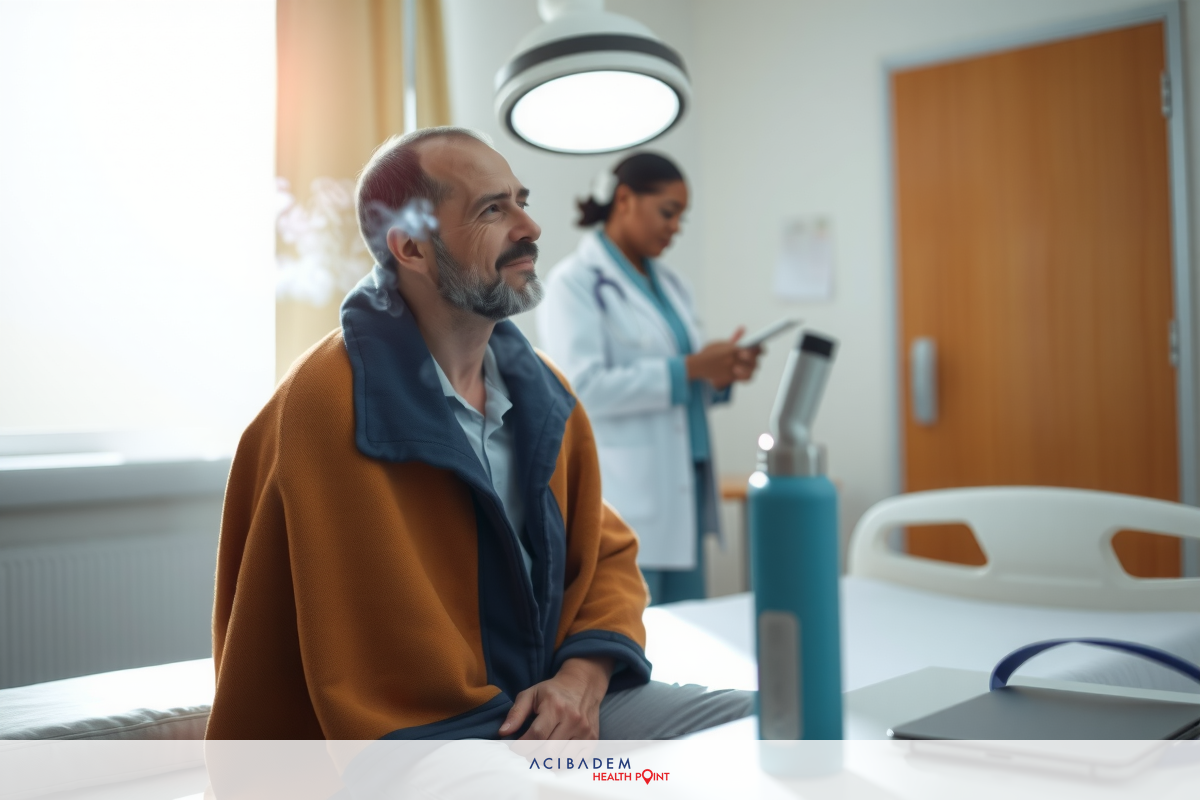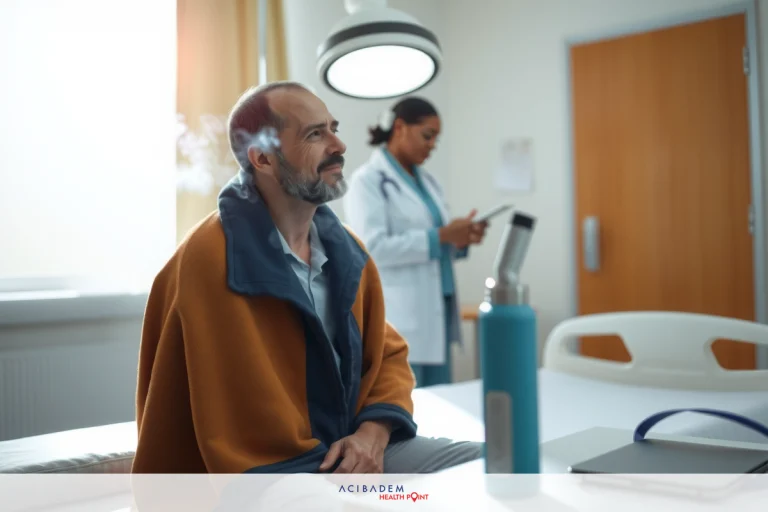Can I Take Hot Vapor After Nose Surgery?
Can I Take Hot Vapor After Nose Surgery? Undergoing a nose surgery, whether for cosmetic or medical reasons, often leaves patients with various questions about the postoperative care necessary for optimal recovery. One such query is the safety and efficacy of using hot vapor or steam inhalation after the procedure. This topic tends to be of particular interest as steam inhalation is commonly used to relieve nasal congestion and promote respiratory health.
The purpose of this article is to provide clarity on this subject. It will not only highlight the importance of postoperative care following nose surgery, but also discuss the potential benefits and considerations of incorporating steam inhalation into your recovery routine. With the right information at your disposal, you can ensure a smooth and successful recovery after your nose surgery.
Postoperative Care for Nose Surgery
Postoperative care is a crucial aspect of recovery after any surgical procedure, including nose surgery. The type and extent of the surgery can significantly influence the postoperative care regimen. However, some common elements are essential in promoting healing, reducing the risk of complications, and ensuring a successful outcome.
The first few days after surgery are critical, and patients need to follow specific guidelines diligently. Some practices include avoiding strenuous activities that may result in bleeding, such as heavy lifting or vigorous exercise. Keeping the head elevated, especially during sleep, can help reduce swelling. Hydration is another key factor; drinking plenty of fluids can promote healing.
Pain management is another vital component of postoperative care. While some discomfort is expected after surgery, severe pain can hinder recovery. Patients should take prescribed pain medications as instructed by their healthcare provider. It’s also important to monitor for signs of infection, such as increased pain, redness or discharge from the surgical site.
It’s worth noting that every patient’s recovery journey is unique, and what works best for one person might not necessarily be ideal for another. Therefore, it’s paramount to maintain open communication with your healthcare provider throughout the recovery process. They can provide tailored advice based on your specific needs and circumstances.
Proper nutrition plays an integral role in promoting wound healing and overall recovery. A diet rich in protein, vitamins C and A, and zinc can aid in tissue repair and boost immunity. It’s also recommended to avoid smoking and alcohol consumption as these can slow down the healing process.
Lastly, mental health is just as important as physical well-being during the recovery phase. It’s normal to experience a range of emotions after surgery—frustration, anxiety, or even depression are not uncommon. Seek support from loved ones or professional counselors if needed.
In conclusion, proper postoperative care after nose surgery encompasses various aspects—physical precautions, medication management, nutrition, and mental health care. Adhering to these guidelines can pave the way for a smooth recovery and successful surgical outcome.

Steam Inhalation as a Postoperative Care Option
Steam inhalation, often referred to as hot vapor therapy, is a common home remedy for various respiratory ailments. Its primary purpose is to moisten the nasal passages and throat, which can provide relief from congestion or dryness. However, its usage as a part of postoperative care after nose surgery needs careful consideration.
The benefits of steam inhalation are primarily due to the warmth and moisture it provides. The warmth helps in dilating the blood vessels in the nose and throat, thereby improving circulation to those areas. This increased circulation can aid in speeding up the healing process after surgery. The moisture from the steam helps in soothing the nasal passages and throat, alleviating any discomfort caused by dryness or irritation.
However, while steam inhalation has these potential benefits, it’s not always appropriate for every individual post-surgery. The heat generated during steam inhalation might not be suitable for some patients, especially soon after a surgical procedure. It may cause discomfort or even lead to complications such as burns if not done correctly. Moreover, excessive steam inhalation could potentially lead to increased swelling or inflammation in the nasal passages.
Therefore, it’s crucial to consult with your healthcare provider before incorporating steam inhalation into your postoperative care routine. They can guide you on its appropriateness based on your specific situation and recovery status. If given the go-ahead, remember to follow their instructions on how often and how long to use this method.
In conclusion, while steam inhalation can potentially serve as a beneficial aspect of postoperative care after nose surgery, it’s not universally applicable. Each patient’s recovery process is unique, and what aids one might not necessarily help another. Therefore, always seek professional medical advice before introducing any new elements into your postoperative care routine.
Frequently Asked Questions
Can I take hot vapor immediately after nose surgery?
No, it is generally not recommended to take hot vapor immediately after nose surgery. It is important to allow your nasal passages time to heal before exposing them to steam. Consult with your healthcare provider for specific guidelines on when it is safe to start using hot vapor therapy in your postoperative care routine.
How soon can I start using steam inhalation after nose surgery?
The timing of incorporating steam inhalation into your postoperative care routine may vary depending on the extent of your surgery and your individual healing progress. It is best to follow the recommendations provided by your healthcare provider. They will be able to assess your condition and advise you on when it is appropriate to start steam inhalation.
Are there any risks associated with steam inhalation after nose surgery?
While steam inhalation can have potential benefits, it is important to be cautious and use it appropriately. Excessive heat or prolonged exposure to steam can cause burns or increase swelling in the nasal passages. It is crucial to consult with your healthcare provider before starting steam inhalation and follow their instructions carefully.
Can steam inhalation help with nasal congestion after nose surgery?
Steam inhalation can provide temporary relief from nasal congestion by moisturizing the nasal passages and helping to loosen mucus. However, it is essential to note that every individual's recovery process is different, and what works for one person may not work for another. Your healthcare provider can guide you on the most suitable methods for managing nasal congestion based on your specific condition.
Are there alternative methods to steam inhalation for postoperative care after nose surgery?
Yes, there are alternative methods that can aid in postoperative care after nose surgery. Nasal saline rinses or sprays can help moisturize the nasal passages and alleviate congestion. Keeping the air in your environment humidified and staying hydrated by drinking plenty of fluids can also contribute to a smoother recovery. Consult with your healthcare provider to determine which methods are most appropriate for you.











